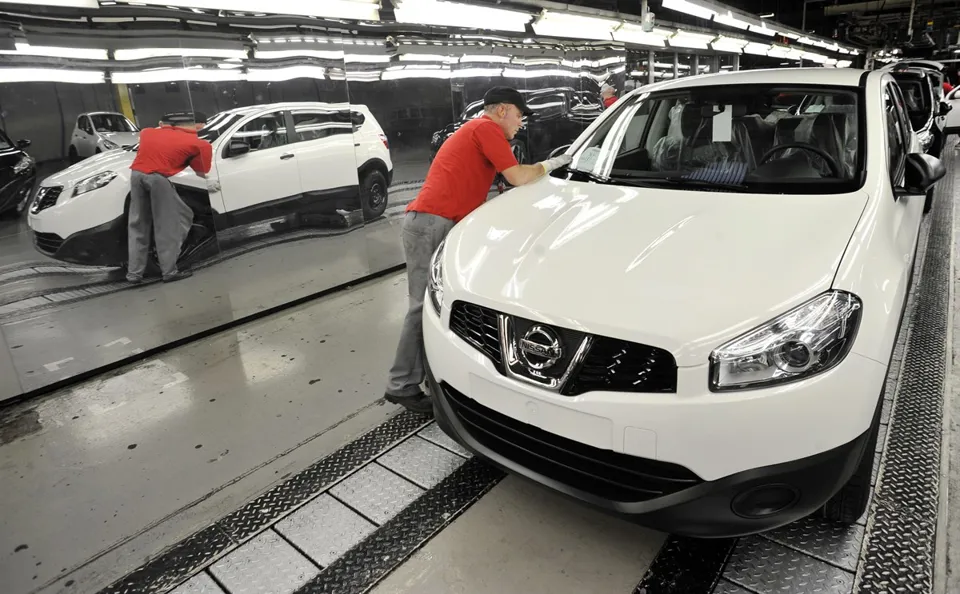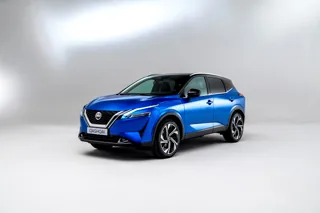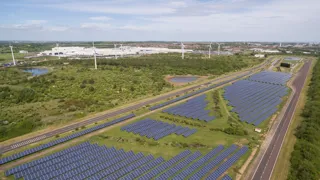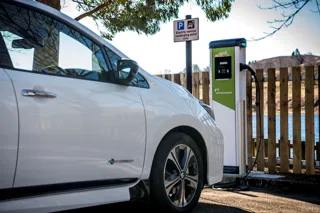Nissan has announced a new £1 billion electric vehicle (EV) hub – Nissan EV36Zero – at its plant in Sunderland.
An initial £1bn investment by Nissan and its partners Envision AESC, a global player in world-leading battery technology, and Sunderland City Council.
Nissan says that the EV36Zero project brings together EVs, renewable energy and battery production, setting a blueprint for the future of the automotive industry.
Nissan president and chief executive officer, Makoto Uchida, said: “This project comes as part of Nissan's pioneering efforts to achieve carbon neutrality throughout the entire lifecycle of our products.
“Our comprehensive approach includes not only the development and production of EVs, but also the use of on-board batteries as energy storage and their reuse for secondary purposes.”
Prime Minister Boris Johnson said that Nissan’s announcement to build its new-generation all-electric vehicle in Sunderland, alongside a new gigafactory from Envision-AESC, is a “major vote of confidence in the UK” and the highly-skilled workers in the North East.
“Building on over 30 years of history in the area, this is a pivotal moment in our electric vehicle revolution and securing its future for decades to come,” he added.
“Commitments like these exemplify our ability to create hundreds of green jobs and boost British industry, whilst also allowing people to travel in an affordable and sustainable way so we can eliminate our contributions to climate change.”
Building on Nissan’s 35 years of manufacturing in Sunderland, the projects announced today represent 6,200 jobs at Nissan and its UK suppliers, including more than 900 new Nissan jobs and 750 new Envision AESC jobs at its new battery plant.
Longer-term, the transformational project modernises and expands Nissan’s EV production capability in the UK, it said.
Envision AESC, the battery arm of global green tech company Envision Group, says that the new gigafactory will enable it to rapidly increase production and provide batteries to power up to 100,000 Nissan EVs a year.
The Nissan announcement comes days after the Society of Motor Manufacturers and Traders (SMMT) called on the Government to introduce a series of measures to ensure the future of the UK’s vehicle manufacturing industry and help drivers make the switch to electric.
In a new report - ‘Full Throttle: Driving UK Automotive Competitiveness’, the Society of Motor Manufacturers and Traders (SMMT) says that a binding target of 60GW/h of battery capacity to be built by 2030 is needed.
A new Nissan electric crossover
As part of the £1bn announcement, Nissan will invest up to £423 million to produce a new-generation all-electric vehicle in the UK.
Designed for global markets, UK production will be exported to the European markets traditionally served by Nissan’s Sunderland plant.
The new crossover will be built on the Alliance CMF-EV platform, with a forecasted production capacity of up to 100,000 units to be installed.
Production in Sunderland will create 909 new jobs at the plant, and more than 4,500 in the UK supply chain, while safeguarding a further 75 R&D jobs. The transformational project takes the total capital investment by Nissan into the plant past £5bn, and also includes:
- R&D at Nissan’s European Technical Centre in Cranfield, Bedfordshire
- Support for UK suppliers to transition to electric vehicles
- Plant competitiveness and environmental improvements
- Skills development in the Nissan workforce for future technologies
Other production locations have not yet been confirmed. More details about the new vehicle, including pricing and technology, will be released closer to the car's sales launch.
Envision AESC already owns and operates Europe’s first battery plant in Sunderland, established in 2012 for the localisation of Nissan Leaf battery production.
The factory’s UK team has nine years’ expertise from supplying batteries to the Nissan Leaf and eNV200, having produced enough cells, modules and packs to power over 180,000 electric vehicles in 44 countries, meeting global benchmark levels of quality, performance, safety, reliability and cost.
Supporting this new model allocation, Envision AESC will invest £450 million to build the UK’s first gigafactory on the International Advanced Manufacturing Park (IAMP), adjacent to the Nissan plant, powered by renewable energy and pioneering next-generation battery technology.
The formal planning process is about to begin for the new gigafactory, which represents an initial 9GWh plant, with potential future-phase investment of £1.8bn by Envision AESC, generating up to 25GWh and creating 4,500 new high-value green jobs in the region by 2030, with potential on site for up to 35GWh.
The new plant, says Nissan, will increase the cost-competitiveness of EV batteries produced in the UK, including through a new Gen5 battery cell with 30% more energy density which improves range and efficiency.
Lei Zhang, founder and chief executive officer of Envision Group, said: “Envision Group’s mission is to be the net zero technology partner of choice for global enterprises, governments, and cities.
“We are therefore delighted to be a part of EV36Zero with Nissan and Sunderland City Council. As part of this, Envision AESC will invest £450m in a new, cutting-edge, low-carbon gigafactory in Sunderland creating 700 new jobs.
“This commitment builds on our long-term partnership with Nissan to achieve our global ambition to make high performance, longer range batteries for EVs affordable and accessible for millions more motorists.
“Growth in demand could bring future investment of up to £1.8bn, additional capacity of 25GWh and 4,500 jobs by 2030. This will put the North East at the heart of a new EV hub in the UK, collaborating on R&D around the whole battery lifecycle, from storage, to second life use, V2G smart charging and closed loop recycling.”
Zero emission manufacturing
Bringing this ecosystem together, Sunderland City Council is leading a project that aims to deliver a 100% renewable electricity ‘Microgrid’ that will save 55,000 tonnes of carbon annually.
With the ability to incorporate the existing Nissan wind and solar farms, initial plans suggest there could be as many as ten solar farms created, with an anticipated 132MW generation, and with a direct connection to renewable energy from the UK grid for ‘firm’ supply to Nissan and automotive companies located on the adjacent International Advanced Manufacturing Park (IAMP).
Plans will continue to be developed in close discussion with potential private sector green investors.
A first-of-its-kind, this project is estimated to be an £80 million investment and also includes plans for a 1MW battery storage system using second-life Nissan/Envision AESC batteries, which will also allow for excess energy generated during daylight hours to be captured and used at another time, helping to balance demand on the grid. Additional infrastructure projects enabling the creation of the new EV Hub take the total initial investment above £1bn.
Sunderland City Council leader, Councillor Graeme Miller, said: “Sunderland is an ambitious city, and today’s announcement is game-changing one for us, for the region and for UK Plc, and the culmination of many months of partnership working with Nissan, Envision and UK Government to ensure that we landed this transformational project.
“We’re proud to be acting as a key enabler, working to secure an £80m infrastructure project that could be the first of its kind in the UK, bringing together energy generation, consumption and storage through a dedicated microgrid.”
Current production in Sunderland includes the Nissan Qashqai, Juke and Leaf, most of which (70%) are exported to mainland Europe, with 20% sold in the UK and a further 10% exported to markets than span the globe, from South America to Australia, and from the Nordics to South Africa.























Login to comment
Comments
No comments have been made yet.